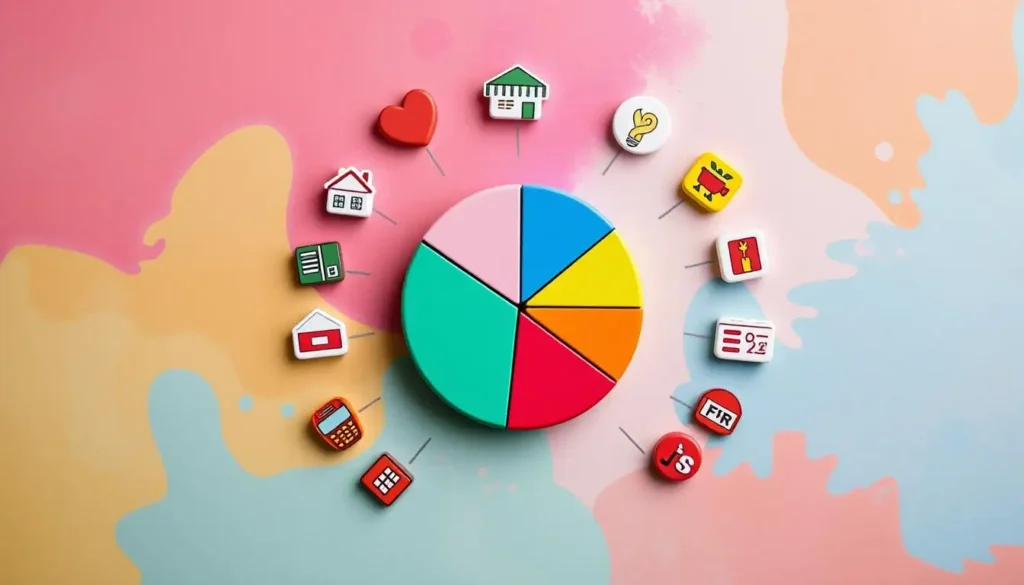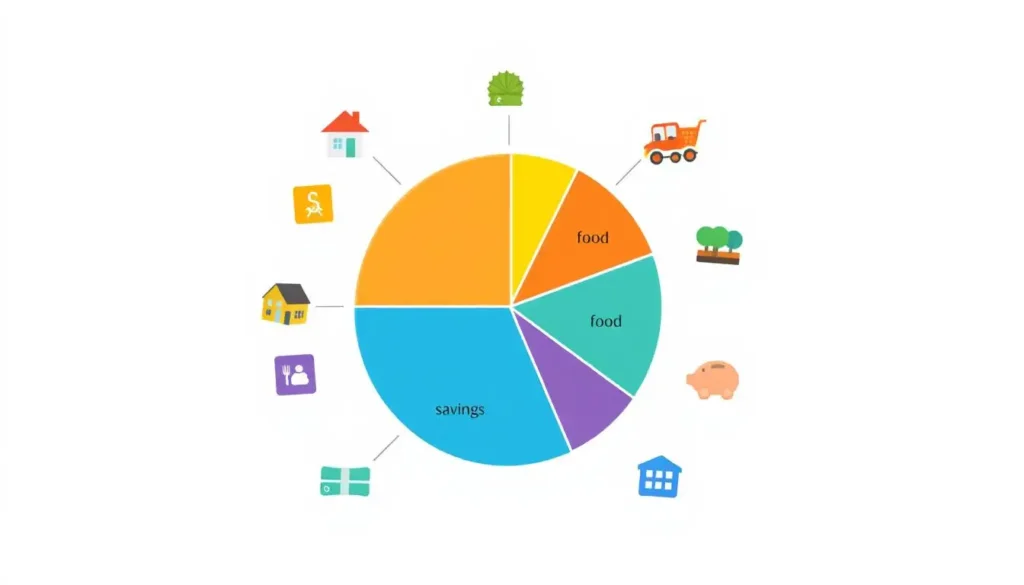Physical Address
304 North Cardinal St.
Dorchester Center, MA 02124
Physical Address
304 North Cardinal St.
Dorchester Center, MA 02124
Discover essential personal budget categories to organize your finances effectively. Learn how to track expenses, save money, and achieve your financial goals

Do you really know where your money goes each month? Creating a detailed personal budget can be the key to financial stability. It helps you understand your spending and find ways to save more.
Making a personal budget is key to financial stability and reaching your money goals. It starts with knowing three important things: expense tracking, fixed and variable expenses, and setting realistic financial goals.
Watching your spending closely is vital for a budget that shows your true financial situation. By tracking your expenses, you can spot where you spend too much. This helps you adjust your spending to match your priorities. It also gives you insights for making better financial choices in the future.
It’s important to know the difference between fixed expenses and variable expenses. Fixed expenses, like rent or mortgage, car loans, and insurance, stay the same every month. Variable expenses, like groceries, utilities, and entertainment, change based on how you live and spend.
Setting realistic financial goals is a big step in budgeting. These goals, both short-term and long-term, guide your spending and saving. They help you focus on what’s important, whether it’s saving for emergencies, paying off debt, or saving for a house.
By understanding and using these basic budgeting principles, you can create a plan for financial freedom. This plan helps you make smart choices and move closer to your goals.
Creating a good personal budget means dividing your income into key areas. These areas are the foundation of a strong financial plan. They help your spending match your priorities and goals.
Housing costs usually take up 25-35% of your budget. This includes rent, mortgage, property taxes, and upkeep. Transportation, like car payments, gas, and public transit, is about 10-15% of your budget.
Food expenses, like groceries and eating out, are 10-15% of your spending. Utilities, such as electricity, water, and internet, are 5-10% of your budget. Insurance, like health, home, and auto, takes up 10-25% of your money.
Healthcare, including medical bills and prescriptions, is 5-10% of your budget. Saving, investing, and paying off debt are important, taking 10-20% of your income.
Lastly, set aside 5-10% of your budget for personal items, entertainment, and fun. This keeps your finances balanced and healthy.

By wisely dividing your income into these key areas, you can reach financial success. You can work towards your goals, like saving money, paying off debt, or enjoying a good life.
Making a good personal budget means dividing your money into key areas. Following some guidelines helps make sure you use your money wisely for the future.
Spending 25-35% of your budget on housing is common. This includes rent, mortgage, taxes, and bills like electricity and water. It keeps your housing costs in check while you focus on other important things.
Setting aside 20-30% for food and transport is a good rule. It covers groceries, eating out, car payments, gas, and public transport. Watching these costs can help you save money.
It’s smart to save 10-20% for savings and debt. This helps you build a safety net and pay off debts faster. It’s about preparing for the future and reducing debt.
Use 5-10% for fun stuff like personal items, entertainment, and extras. It lets you enjoy life while staying on track with your budget. This part of your budget is flexible, so adjust it as your needs change.
These are just suggestions, and your budget might need to be different. It depends on your income, goals, and life situation. The goal is to balance your needs now and for the future.
| Budget Category | Recommended Percentage |
|---|---|
| Housing and Utilities | 25-35% |
| Food and Transportation | 20-30% |
| Savings and Debt Repayment | 10-20% |
| Discretionary Spending | 5-10% |
By following these budget allocation and expense percentages, you can lay a strong financial planning foundation. It’s a big step toward achieving your long-term financial goals.

Making a good personal budget is key to financial success. It helps you understand and manage your money better. By doing this, you can reach your financial goals.
Reviewing and updating your budget often is important. It keeps your finances in line with your changing needs. This leads to better financial health and success in the long run.
A well-made budget lets you focus on what’s important. You can save, pay off debt, and still enjoy some spending. This way, you make smart money choices and reduce stress.
Starting your financial journey is exciting. But, staying true to your budget is crucial. Keep track of your spending and set achievable goals. This way, you’ll manage your money well and reach your financial dreams.
Key budget categories include housing, transportation, and food. Also, utilities, insurance, and healthcare are important. Don’t forget savings and debt repayment.
Tracking spending helps you spot where you’re spending too much. It’s key to making your budget better. It also helps you know the difference between fixed and variable expenses.
There are many budgeting methods out there. You can choose from detailed categories or simpler systems. Pick what fits your life and needs best.
Allocate 25-35% for housing and utilities. Spend 20-30% on food and transportation. Set aside 10-20% for savings and debt. And, 5-10% for fun stuff. Adjust these based on your goals and life.
Realistic financial goals are key to budgeting well. They help you focus on what’s important. This leads to smarter spending and saving.
A highly useful and well-explained article! This website consistently
delivers great content.
Hola, quería saber tu precio..
Its such as you learn my thoughts! You seem to know so much approximately this, such as you wrote
the guide in it or something. I believe that you simply can do with a few % to power the message home a little bit, but other than that, that is magnificent
blog. A great read. I will definitely be back.